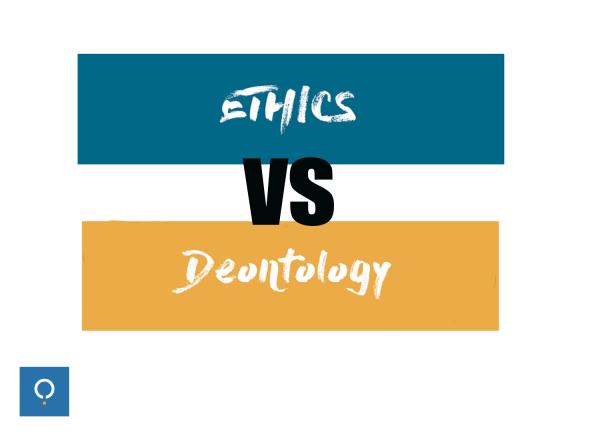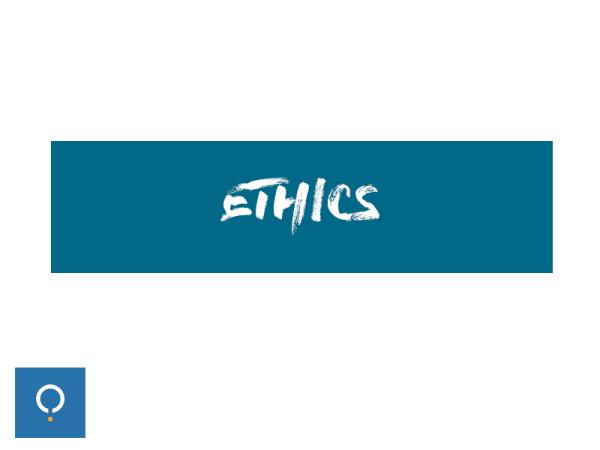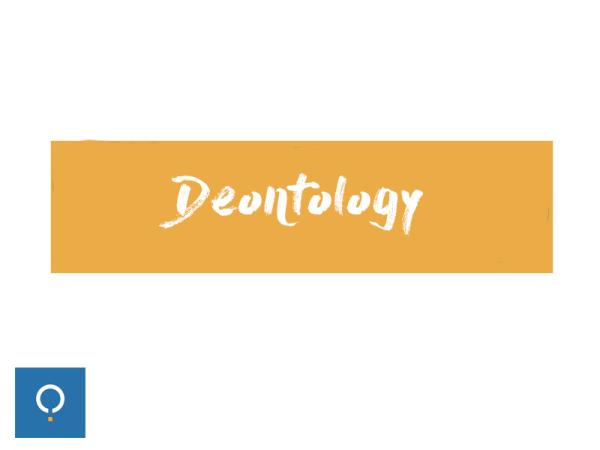The Difference between Ethics and Deontology


The terms "ethics" and "Deontology" may seem identical to you but actually do differ in their meaning. There is indeed a nuance that makes ethics and Deontology different terms, although they are complementary at the same time. In this oneHOWTO article we will explain how to establish the difference between ethics and Deontology.
Ethics
The word Ethics comes from the Greek Ethos, which refers to the behavior and character of an individual, and its general way of being. Nowadays, it is a branch of philosophy that studies all moral norms that influence our actions and their foundation. It is in certain way the science of morality which attempts to define what is good and what is wrong. The purpose of ethics is to define the behaviors of men in order to obtain an ideal society and the happiness of all. If you have any doubts about the difference between ethics and morals, we invite you to read this other oneHOWTO article.

Deontology
The word Deontology or deontological ethics also comes from Greek, more precisely from the word deontos which means 'duty'. It is a branch of ethics that establishes the foundations of a person's duties as a function of morality. Deontological ethics applies to the professional world by establishing a series of rules and duties to which members of the same professional or trade activity are subject. Unlike Deontological ethics, which defines what a particular individual believes to be morally correct in his or her profession, Deontological ethics is a code of conduct that applies to all professionals.
Example of ethical rules:
- Medical secrecy in the health professions and the ban on disclosing information about their patients.
- Professional secrecy for lawyers and the prohibition to disclose information about their clients.
- The prohibition for a police officer to take advantage of his function to obtain advantages in his favor.

When Deontology clashes with personal ethics: Utilitarianism
Even though Deontology defines certain rules a profession finds ethical, some situations will clash with an individuals' ethics that don't match the profession's Deontology.
For example, if a politician unilaterally bans a certain product because it is bad for the population's health without taking into account how it will affect this product's industry. Even though the politician's Deontology ethics may disapprove of unilateral amendments, utilitarianism has prevailed, as he has weighed the consequences of his or her actions and has concluded it will benefit more people than it will harm, even if the latter are innocent.
Therefore, Deontology only focuses on actions taken in each profession and the ethics behind this action, without thinking about the consequences.
Ethics has many branches, which is why Deontology is only one of the ethics the professional will consider when taking a decision; Utilitarianism being another factor to consider, as it gives more importance to consequences. It thus defines an action the consequences of which will benefit more people than it will harm.
If you want to read similar articles to The Difference between Ethics and Deontology, we recommend you visit our University degrees category.






